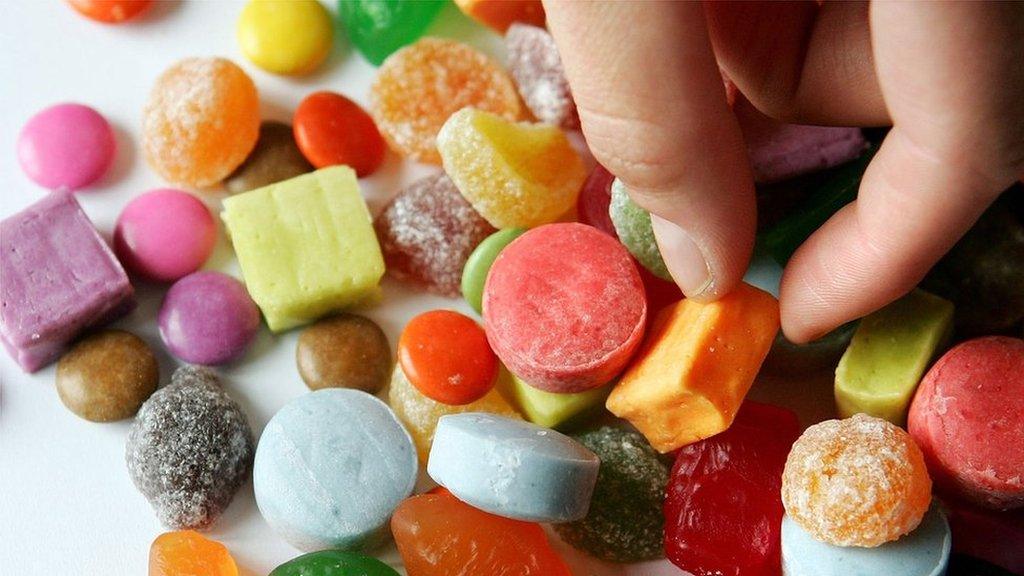Energy Drinks: Wales propose banning the drinks for under 16s
- Published
- comments
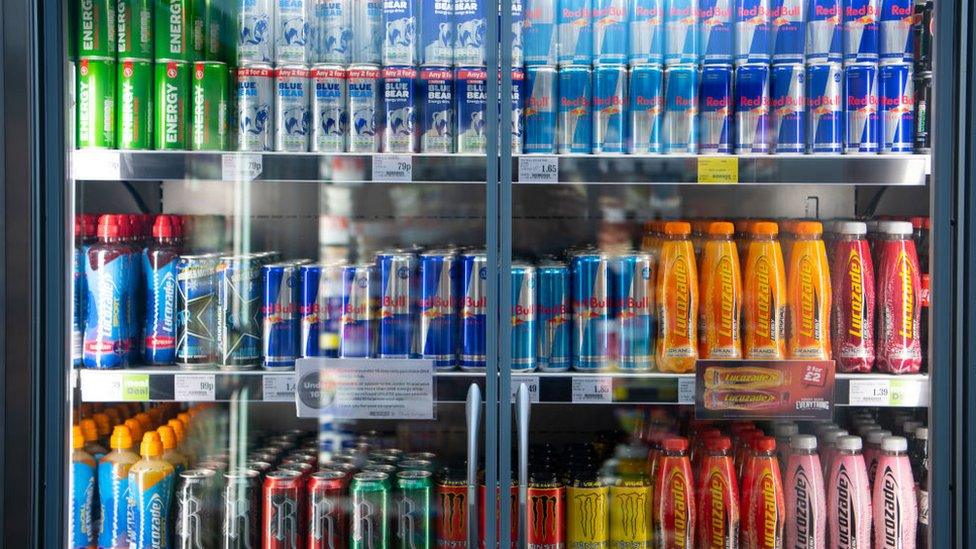
Wales is considering banning the sale of energy drinks to under 16s
Selling energy drinks to children under the age of 16 could soon be banned in Wales.
It's all part of plans to tackle childhood obesity in the country.
More than one in four children in Wales aren't a healthy weight when they start primary school, according to official figures.
Under the plans the Welsh government's is considering, takeaways could also be stopped from opening near schools and free soft drink refills could be banned.
Wales' deputy minister for mental health and wellbeing, Lynne Neagle, is looking to hear from members of the public, including children, about the government's plans which it says aim to improve the health of young people in the country.
"We want to hear people's views on how we can support the nation to be healthier and to reduce the number of people who are obese or overweight.
"Often, foods that are sugary or high in fat or salt are more readily available and promoted, making it harder for people to make the healthy choice," she said in a statement.
Ms Neagle spoke to students at a school in Cardiff where nutritional values form part of students' lessons about food.
"They were brilliant and really well-informed and thought that education was really important and that there were other things as well that we could do such as making the labelling warning of the dangers for young people more prominent."
The pupils had different views on the government's plans to ban the sale of energy drinks to under 16s, and some suggested different approaches they thought should be taken.
Some energy drinks have up to 21 teaspoons of sugar and the same amount of caffeine as three cups of coffee
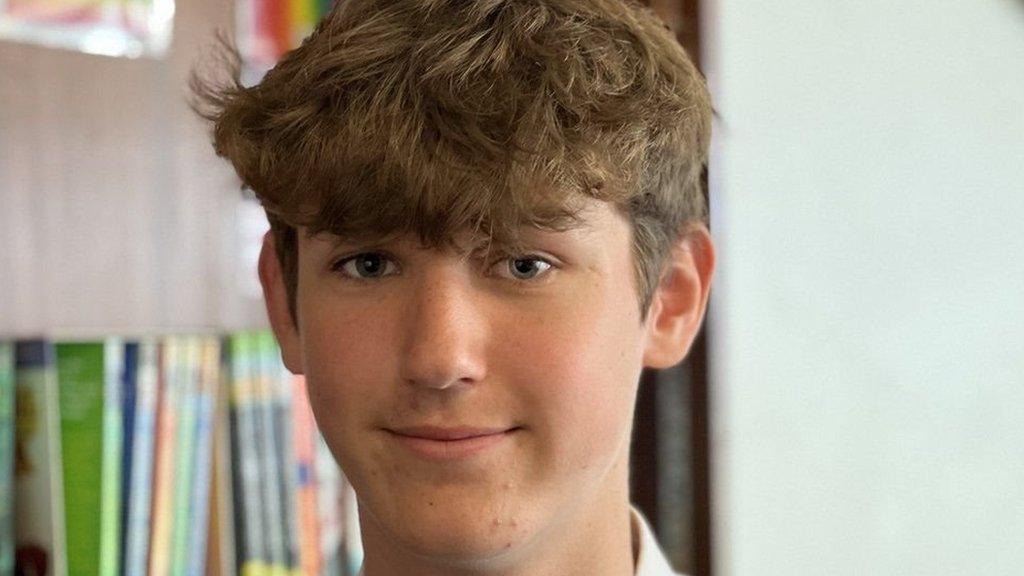
Year 9 pupil Lewis agreed with some of the proposals but called banning the sale of energy drinks "a bit extreme".
"I think it's more general stuff that would work like not putting them near the checkouts and maybe shops should put fruit at the tills," he said.
"It's just that when you see chocolate there, it's more likely you'll go for the chocolate, but people still like fruit as well."
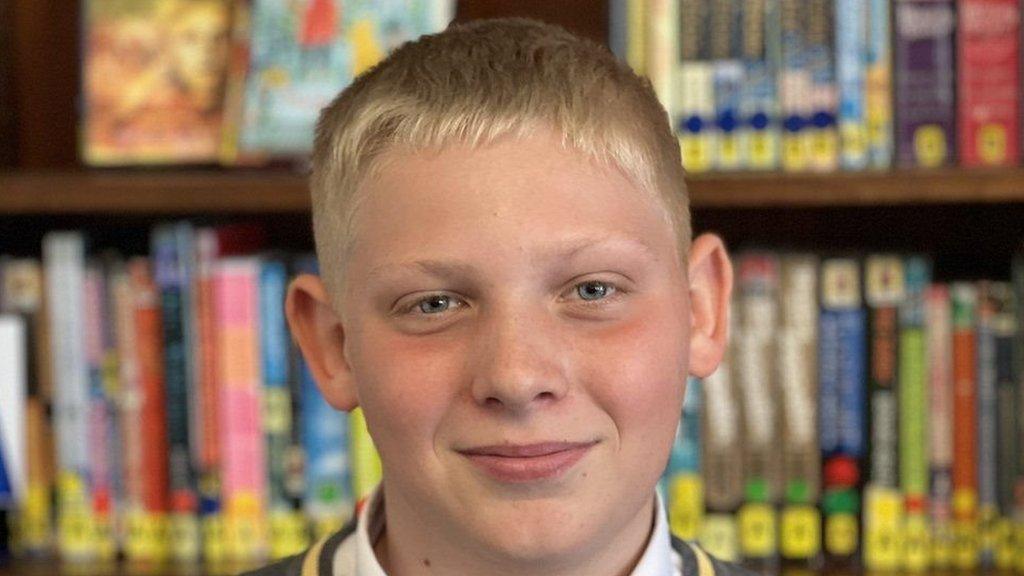
Callum, said schools should do more to teach pupils about foods that are high in sugar and fat.
"Banning energy drinks will just mean under-16s will just ask someone over 16 to get them for them," he said.

"I think you need to educate people on energy drinks because some people just drink energy drinks every day of the week like it's water," said Kundi.
"So we need to educate them in school and cooking lessons but we shouldn't ban them because they do taste nice and yes, they are unhealthy, but it's about educating young kids on how unhealthy they are."

Deeptha said: "I don't think a ban's a good idea because taking them away won't solve the problem.
"Instead advising them and educating them more would be a better option.
"I hope the deputy minister does take our views on board because we the people vote for them and that's really important if we want our country to improve."
What's going on in the rest of the UK?
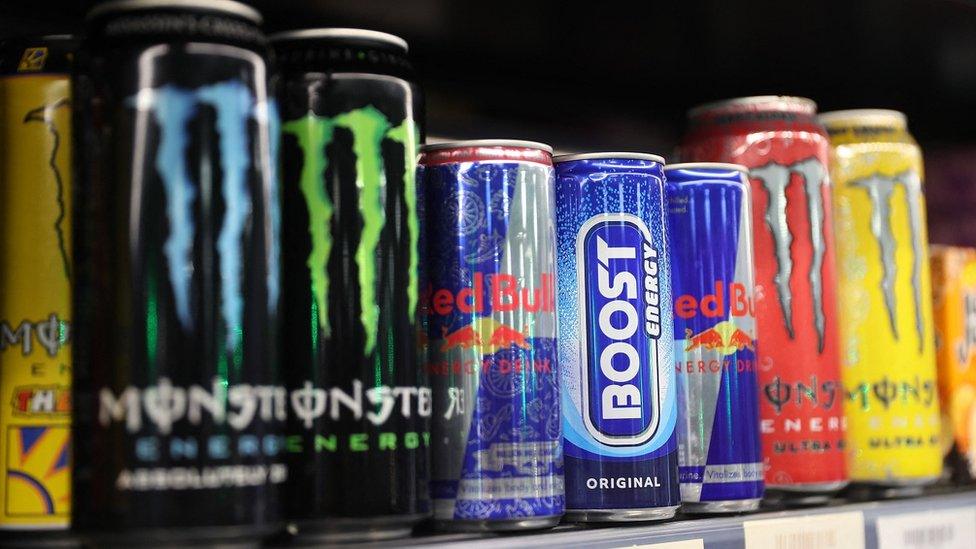
Energy drinks often contain lots of sugar and caffeine
In England, the government were looking into a possible ban on the sale of energy drinks to anybody under 18 back in 2018. However, a law hasn't been passed on this.
In 2019, the sale of energy drinks to under 16s in hospitals and isports centres was banned in Scotland. The government did consider banning the sale of the drinks in shops, although once again, no laws have been passed to bring this into force.
There is currently no ban on the sale of these drinks to under-16s in Northern Ireland.
Despite each nation's rules, a number of major supermarkets in the UK have already stopped the sale of energy drinks with high caffeine levels to under 16s including Morrisons, Tesco, Asda, Lidl, Waitrose, Sainsbury's, and Aldi.
- Published1 December 2015
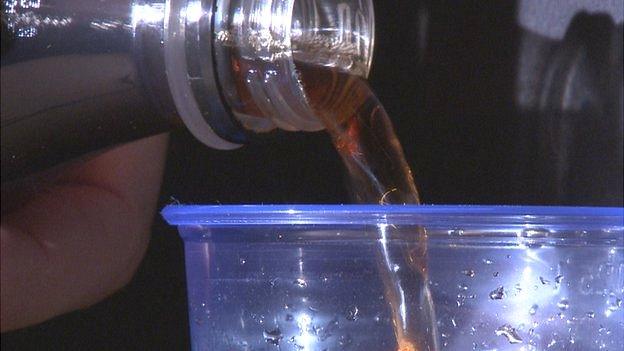
- Published30 August 2018
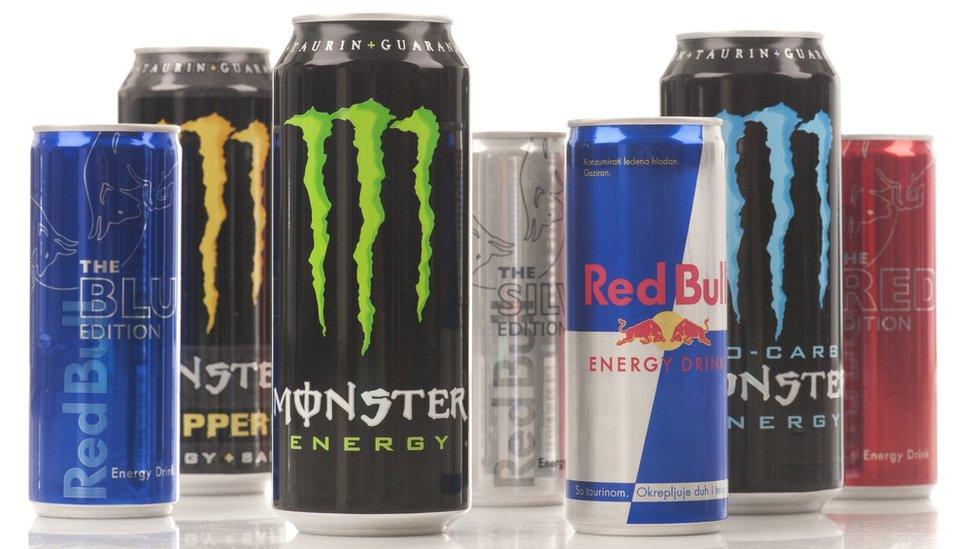
- Published30 May 2018
